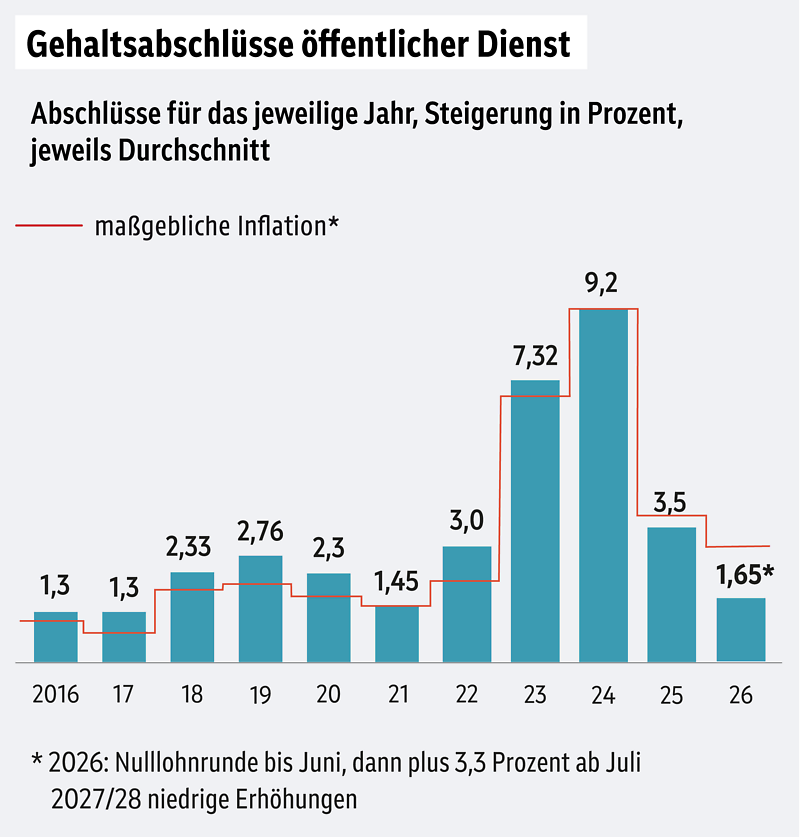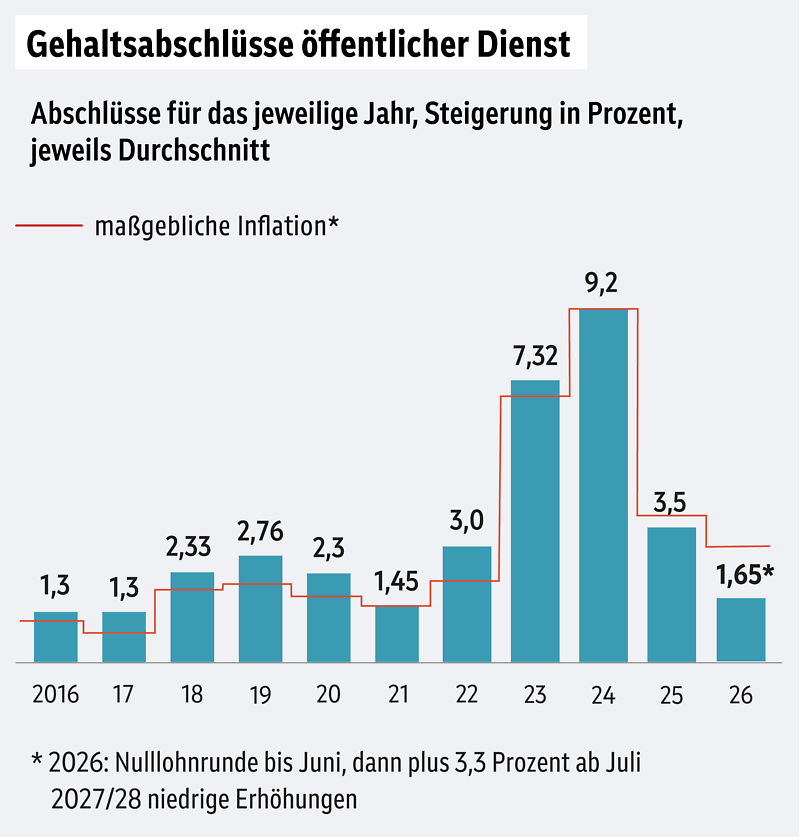You’ve got to hand it to Austrian politics – they’ve perfected the art of presenting a massive loss as a historic victory. The latest Gehaltsabschlüsse (salary agreement) for the public sector isn’t just disappointing, it’s a masterclass in how to systematically undermine your own workforce while calling it progress.
Let’s cut through the political spin and look at what actually happened when the government “aufschnürte” (unbundled) a previously agreed-upon salary deal with public sector unions.
The Numbers That Don’t Add Up
The government and unions proudly announced a three-year deal that they claim averages 1.5% increases annually. But here’s the reality behind the headlines:
- January to June 2026: Absolutely nothing. Zero. Nada.
- July 2026 to July 2027: 3.3% increase (but this was already legally agreed upon last year)
- August 2027: Fixed amount increase of €20-60
- September 2028: Fixed amount increase of €21-60

For anyone earning over €3,000 monthly, this translates to a real-term loss. As one public servant bluntly put it: “This is for everyone with a salary over 3,000 Euro an adjustment below inflation 2025, a six-month zero-wage round 2026 and then two quasi-zero-wage rounds.”
The Social Illusion
The government is touting the “soziale Staffelung” (social scaling) as a victory for lower earners. But let’s examine these generous fixed amounts:
- Up to €3,010: €58 increase (2027), €59 increase (2028)
- €3,011-€6,163: €40 increase (2027), €45 increase (2028)
- Above €6,163: €21 increase (2027), €21 increase (2028)
For someone earning €6,500 monthly, that’s a 0.3% increase. Before taxes. In an environment where inflation has been running hot. This isn’t social policy, it’s insult disguised as solidarity.
The Contract Breach Disguised as Compromise
What makes this particularly galling is that the original deal was already legally binding. Last year, public servants accepted a below-inflation increase for 2025 (3.5% when inflation was 3.8%) with the legally binding promise they’d make up the difference plus 0.3% in 2026.
Now, facing budgetary pressures, the government simply decided to unilaterally modify this agreement. They saved themselves €310 million in 2026 by breaking their word.
Beamtenstaatssekretär Alexander Pröll (ÖVP) had the audacity to call this a “historischer Schritt” (historical step). Indeed, it’s historic – it’s the first time a sitting government has so blatantly violated the principle of contractual security in public sector negotiations.
The Union’s Surrender
Perhaps most baffling is the union leadership’s response. Eckehard Quin, head of the GÖD (Gewerkschaft Öffentlicher Dienst), declared “Die Sozialpartnerschaft lebt” (Social partnership is alive) after agreeing to this deal.
Many public servants feel differently. The sentiment among rank-and-file members is one of betrayal. As one commented: “2.5 zero-wage rounds secured instead of 2x maybe… and they want to sell that as a win.”
The unions didn’t just fail to protect their members, they actively participated in rewriting a worse deal and presenting it as progress.
The Political Games
Behind this fiasco is pure political calculus. The government needed to show Brussels they’re serious about deficit reduction. Rather than tackling structural spending or addressing the massive subsidies that drain the budget, they chose the softest target: public servants who already accepted below-market raises last year.
The WKO (Wirtschaftskammer Österreich) predictably cheered the deal as “ein wichtiges Signal für die heimische Wirtschaft” (an important signal for the domestic economy). Translated: “Great, we can continue underpaying our own workforce while complaining about labor shortages.”
What This Means for Austria
This isn’t just about money. It’s about the erosion of trust in institutions. When the government can unilaterally break legally binding agreements with its own employees, what does that say about rule of law in Austria?
For international residents watching Austrian politics, this serves as a cautionary tale. The famed “Sozialpartnerschaft” that Austria proudly exports as a model of industrial peace appears to be a one-way street where flexibility is always demanded from employees, never from employers or the state.
As one frustrated public servant summed it up: “I didn’t make the national debt, always paid my taxes diligently.” Yet they’re the ones being asked to shoulder the burden of fiscal mismanagement through delayed payments and minimal raises.
The next time you hear Austrian politicians praising their social partnership model, remember this moment. Remember how quickly that partnership dissolves when the budget gets tight, and who’s expected to make the sacrifice.
It’s not a partnership when one side holds all the power and the other gets to choose between a bad deal and a worse one. It’s just politics as usual.



